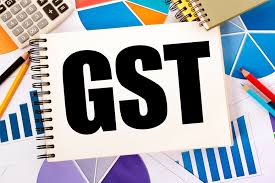Income tax: What Annual Information Statement (AIS) means for you?
The Central Board of Direct Taxes recently announced availability of Annual Information Statement (AIS) to the taxpayer. There is all around curiosity in the minds of taxpayer as to what it is and what implications it has for the tax payers. Let us discuss.
Till now we have a 26AS statement which primarily provides the details as regards taxes deducted/collected from your income as well as the details of taxes paid by you directly. It also has the details of income tax refunds along with details of interest granted on such refund to you. Now the government intends to expand the scope of details which would be available to the taxpayer which will help the taxpayer in filing their income tax returns more accurately. It is this purpose of better compliance by the taxpayer that the government has introduced the AIS. AIS is nothing but a statement of financial transactions furnished to it by various entities in respect a taxpayer collated by the tax department based on the PAN.
The AIS has two components. One is taxpayer information summary (TIS) and other is proper AIS detailing the information contained in TIS.
What are the details available in your AIS
There is a general perception being created that details of all your financial transactions are available with the government and all those transactions will get reflected in the AIS, which is not true.
In addition to the details which are presently available to you in form No. 26AS, the AIS has details of all the transaction which are reported by certain entities under Annual Statement of Financial Transactions which they are required to furnish to the tax department. These entities includes banks, registration offices, regional transportation office, authorized dealers dealing foreign exchange, stock exchanges, mutual funds, companies issuing shares and debentures, RBI and all the taxpayers who are liable to deduct and collect tax at source. The transactions which get reported include details of various income received by you like dividends, interest, rent, professional fee etc. Likewise, transactions for purchase and sale/redemption of shares and units of mutual funds beyond certain threshold in aggregate during the year also get reported. This also includes purchase of property registered above thirty lakh rupees. It further includes transactions with banks like deposit of cash, purchase of drafts, payment of credit card dues, fixed deposits made etc.
There are news reports that details of your saving bank account interest will also be available under AIS which I doubt as the banks and post offices presently are not required to furnish the details of saving bank interest to the income tax department as no tax is required to be deducted unless you are a non-resident where the banks deduct tax even on saving bank account interest.
Please note that your details will reflect in the AIS only if the aggregate amount of the transaction falling in that category and with that entity exceeds the threshold limit prescribed.
What you have to do?
In case you find that some of the transactions which are reflected in the AIS do not belong to you, you have option to report such transactions online and the AIS gets modified to that extent while retaining the original information also along with value reported by you. In case you have been investing in mutual funds jointly, the value of mutual fund transactions reported in your AIS will be higher as the mutual funds are required to report the value of transactions against the name of all the holders and to that extent it is duplication of data. In such a case you need not worry as such difference is explainable. However, if there are transaction of the nature which you did not enter into, report such inaccuracy online to safeguard your interest.
Way forward in AIS
Uploading of AIS in your account is part of “Project Insight" under which the income tax department intends to check tax evasion and will use artificial intelligence to detect cases of tax evasion. In future the income tax department may also ask various entities to report the details of cash transactions made with them. For example, the department may ask online vendors like Amazon and Flipcart to report the details of cash transaction above certain threshold limit even if the PAN number of the buyers are not available with them. Based on the address and name the income tax department will be able to track such transactions to your PAN and include such transactions in your AIS. So those who deal with black money have to worry about and nothing to worry about for the honest taxpayers.
As and when the AIS system stabilizes the income tax department may discontinue form No. 26 AS as the details presently available in 26AS are already included in AIS.
Download our App to get knowledge updates: https://play.google.com/store/apps/details?id=com.app.gstmitra




Comments
Post a Comment